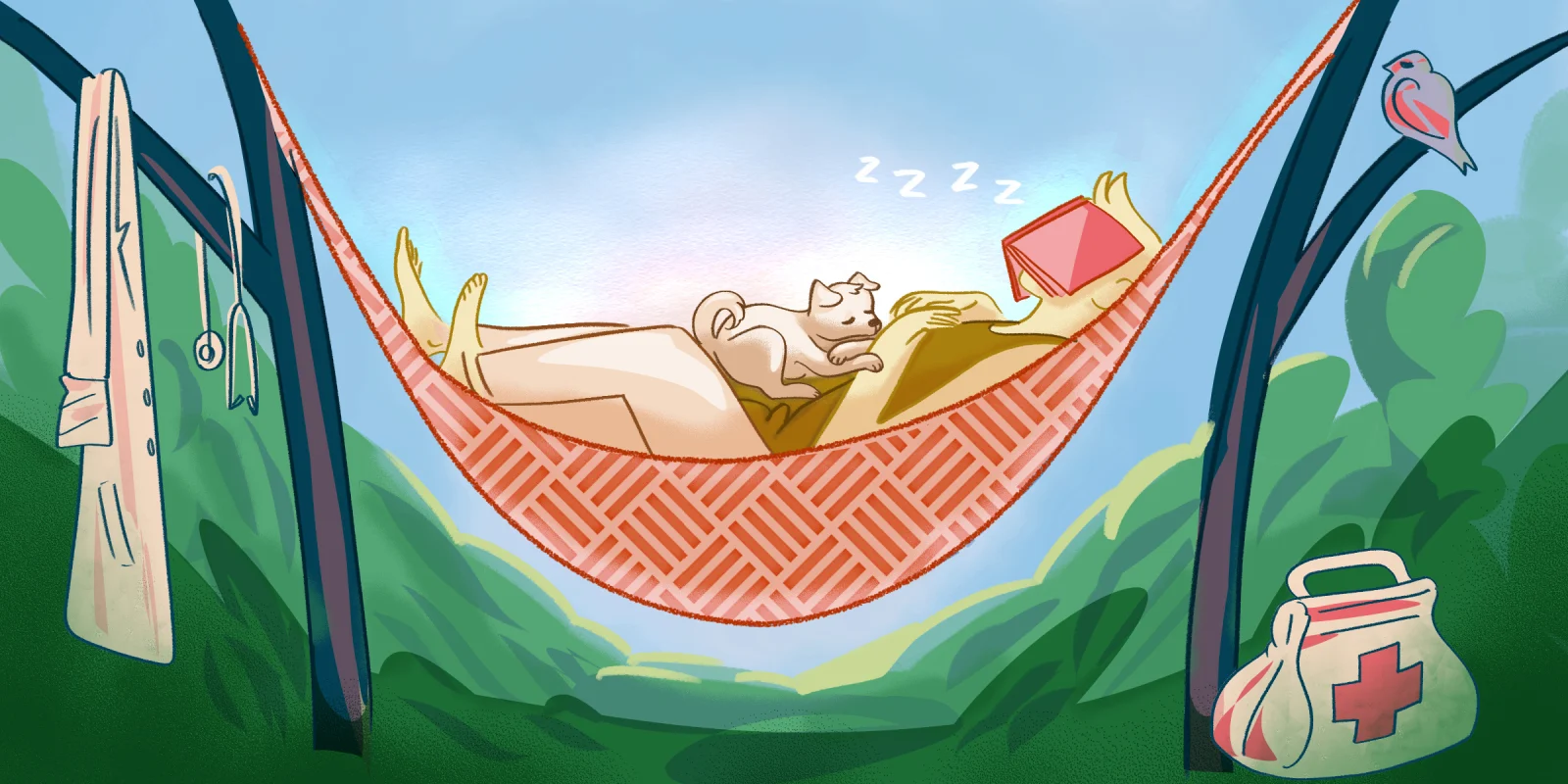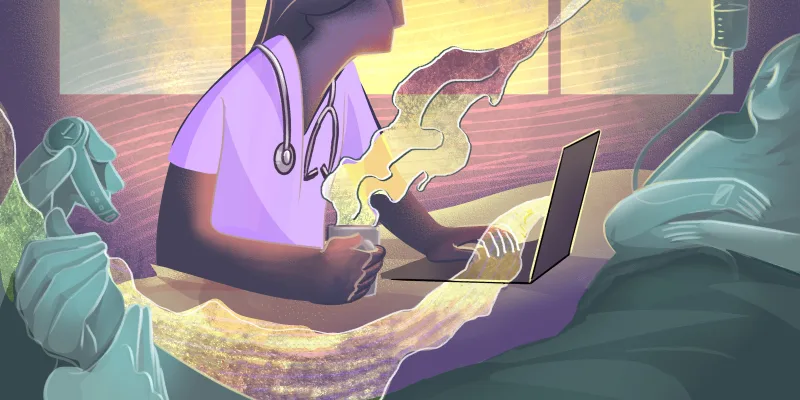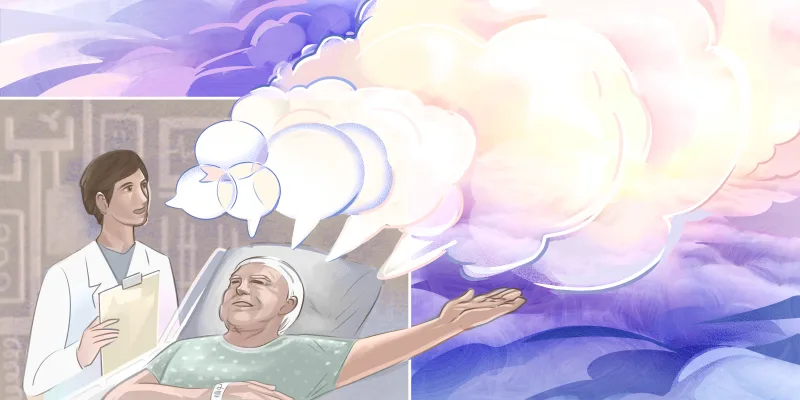 A health care professional's hours are long and the stresses are many. It is important, above all else, to try to follow a structured schedule as much as possible. Unlike so many in the health care industry — whether doctors or nurses, women or men — I consider myself a “workafrolic,” rather than a workaholic.
A health care professional's hours are long and the stresses are many. It is important, above all else, to try to follow a structured schedule as much as possible. Unlike so many in the health care industry — whether doctors or nurses, women or men — I consider myself a “workafrolic,” rather than a workaholic.
Please allow me to explain. A workafrolic loves his or her work as much as the workaholic, but revels in it in a way the workaholic does not. Where the workaholic is working just for working’s sake, the workafrolic derives joy from every task, every aspect of the job. And that’s how I feel about my job as Medical Director at St. Luke’s Physical Medicine and Rehabilitation, in Cedar Rapids, Iowa. My specialty is physiatry — i.e., physical medicine and rehabilitation, which involves the non-surgical treatment of various musculoskeletal disorders — and I can attest to the fact that the profession is all-consuming.
Health care is not just a job; it’s a responsibility. It is well nigh impossible not to become personally involved with most, if not all, of my patients. There’s an investment on my part, as the health care professional. I can’t just turn your feelings on and off. Nor would I want to. I was initially drawn to the profession to help people, and it is fulfilling to know that I have done so — that even when patients have moved on, I might receive a card in the mail and immediately be drawn back into their orbit, if only from afar. The connection with each of them is such that I become, in effect, a friend for life.
So, I will happily get to the hospital each day by 5:30 a.m. (if I arrive any later, I feel like I spend my entire day, which lasts until about 6:30 p.m., playing catch-up). And I will happily take calls at home (having an understanding wife means everything).
I am a devotee of Grant Cardone, an entrepreneur who wears many hats: consultant, trainer, author, commentator, speaker, consultant, influencer, disruptor. He has 50 rules, for life and/or business, the first of which is this: Success is your duty.
Growing up in Queens, the son of a bus driver and a nurse, I knew I wanted to help people, but didn’t know exactly how I wanted to go about doing it. At one point, I settled on becoming an anesthesiologist and headed off to study in Poland, in part because a friend was doing the same.
That certainly expanded my worldview (and for a time, my language skills), though I came back to Brooklyn to finish my schooling. Physiatry was just something that kind of fell into my lap, and over time I found myself in Iowa, in my current post.
In retrospect, now I would say God was putting all the dots together. But at the time, it was just that I wanted to try this out — I wanted to get away from home, be on my own, and be an independent teenager.
At various points in his list of rules, Cardone extols the value of hard work. In essence, he argues that no matter how good your ideas are, no matter how great your art is, or how excellent your skill set, if you’re not vibrating at a frequency that causes people to wonder how you manage to do everything that you are doing, you’re not going to make it — which is why I’m in the office every morning. And why I routinely work 12-hour days. Elsewhere in his list, Cardone discusses putting oneself first — how his dreams are top of mind, first thing every day. As he puts it, “If you don’t control your environment, somebody else will.”
In the health care world, that means trying to be at your best every day. Eating right, getting the proper rest, and exercising. Of course, there is a catch-22 on the latter score when it comes to health care workers, who are on their feet all day long. Exercise, you might ask? We get plenty. Fair enough, but the overall premise remains: practice healthy habits. And while I do take work home with me — something health care workers are notorious for doing (and something that is oh-so-easy to do in the Information Age) — there are times you just need to step away. Put the email aside. Avoid the urge to check a work file. And just in general, limit screen time, especially late in the day, as it delays your body’s release of melatonin, which is vital to sleep.
Finally, it pays to tend to your relationships with your friends and family members. If that means scheduling regular meals or activities, so be it. But make time for those you love. Renee Dahring, a career coach, cautions that it is unwise to let work stress steal from one’s personal time. Similarly, Dave Mittman, creator of Clinician1, has said that vacations are essential. “Take some days off,” Mittman said, “and stop being a provider.”
Again, not the easiest thing to do. It’s an intense profession — and an important one. It’s vital to give all that you can to it, but it’s no less vital to look after yourself.
Dr. Stanley Mathew is a physiatrist based in Cedar Rapids, Iowa. Since 2009, Dr. Mathew has been a member of St. Luke’s Physical Medicine and Rehabilitation (PMR) medical team. Throughout his career, he has focused on pain management, spasticity management, and spine and musculoskeletal medicine. Although Dr. Mathew was born and raised in New York, he fell in love with Iowa as soon as he arrived. He looks forward to continuing to help patients and grow his business.
Illustration by April Brust





